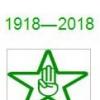پستها: 44
زبان: English
se (نمایش مشخصات) 1 مارس 2015، 14:09:51
I wish there would be someone really interested in finding the possibility to commence a college which uses Esperanto as the medium of instruction.
My entrance to the Esperanto world is very young,below 5 years and I see lots of arguments which are not in the era of 21st century.
The possibility of setting up an external,online programme,as the world economy forum page said, is inevitably for the change. If the Esperanto world could think out of the box, Esperanto is not only can survive better but also can be an important language.
The college should focus solely on Certificate course and latter develop into the Diploma. Degree courses would be decades later.
Would the teaching staff be available for the administration and management courses ? This is my main point of worry.
The blogspot and wordpress blogger companies, if we buy the domain or space from them, they will give us a template to do the website. Certainly, within the first year, the college would not possible getting many students as the students would have to learn Esperanto before entering. Of course, the college can team up with lernu to provide the language course and patience should be a part of it. Flowers do not blossom overnight.
I cannot speak for other parts of the world, I could only briefly introduce the ASEAN aspect as I know better of ASEAN but disappointed with Vietnam esperantists who organised several times IKJ, KS and even the UK, the memberships in the country are not more than a hundred.
Here is a reminder that, the website of the college should be mobile phone friendly as Indonesia has large part of people are using mobile phone to access internet due to geographical issues. Just as I can only afford to pay for 300 MB volume internet per day. Internet surfing rate in Cambodia is also costly and the connection of internet in Laos is slow.
Finally, I hope this thread does not being hijacked again.
se (نمایش مشخصات) 1 مارس 2015، 14:14:55
vejktoro:Thank you, I do not like to respond to your suggestion in the other thread, I do not have time to read through every part of comment which is not related to my main target.
Ha!
Se, we would all love to help once we get over ourselves.. can we translate? is there a copyright we cannot get beyond? Can you contact the university and make a proposal?
It is not possible to spend so much of time to get the university to endorse for the course materials and it is also unwise to get the universities to work with Esperanto world at this moment.
Why not someone who would like to take the challenge to begin a networking and crow-funding for the project. Edukado net started a decade ago without nothing but Pasporta Servo began more than half a century ago but still doing worse than Couch-surfing in terms of revenue. Why, one is based on the survive and dead situation and the other is based on 'you must support it ' basis.
I start a new thread here is hoping to get more ideas before we launch into a new project.
Tempodivalse (نمایش مشخصات) 1 مارس 2015، 15:57:22
There is an Esperanto language edition, but it is still in the "incubator", meaning that it does not have its own domain (yet) due to lack of users and materials. All it would take is a few dedicated users to make it active and be transferred to eo.wikiversity.org - similar to eo.wikipedia.org.
From Wikipedia's description:
[Wikiversity] differs from more structured projects such as Wikipedia in that it instead offers a series of tutorials, or courses, for the fostering of learning, rather than formal content.The advantage here is that the technical and infrastructure aspects are mostly taken care of by the Foundation. All one needs is a little knowledge of wiki-syntax and one can just start contributing.
Perhaps this is not what you had in mind, but I thought I should mention it.
makis (نمایش مشخصات) 1 مارس 2015، 17:53:18
makis (نمایش مشخصات) 1 مارس 2015، 18:15:07
Tempodivalse:There is a website called Wikiversity which aims to host free (as in freely-licensed and freely accessible) education resources and (original) scholarly projects in multiple languages. It is a sister-project of Wikipedia, run by the Wikimedia Foundation. Anyone can come and contribute, but specialists in certain topics are particularly sought. It forms a kind of "informal" college.I wonder if it'd be possible to get acrreditation through there. Like how schools don't allow you to use Wikipedia in your bibliography, would some course/degrees pass that "oh, it's from Wikipedia" hurdle.
makis (نمایش مشخصات) 1 مارس 2015، 18:17:40
makis:You can check out Moodle which I mentioned in the other thread. It's the same kind of thing an online university would use.And I offered it in the other thread to host a moodle platform and still would but only if there are course/content creators out there.
jdawdy (نمایش مشخصات) 1 مارس 2015، 18:21:35
Tempodivalse:There is a website called Wikiversity which aims to host free (as in freely-licensed and freely accessible) education resources and (original) scholarly projects in multiple languages. It is a sister-project of Wikipedia, run by the Wikimedia Foundation. Anyone can come and contribute, but specialists in certain topics are particularly sought. It forms a kind of "informal" college.Sounds like something that the Akademio Internacia de la Sciencoj San Marino should work with. They exist as an official institution, but other than some summer programs don't seem to do much. Seems like creating an online Esperanto college would be an ideal marriage for the Academy.
Tempodivalse (نمایش مشخصات) 1 مارس 2015، 19:58:36
makis:I wonder if it'd be possible to get acrreditation through there. Like how schools don't allow you to use Wikipedia in your bibliography, would some course/degrees pass that "oh, it's from Wikipedia" hurdle.Each Wikiversity language community has wide freedom to decide how to structure its project. There could potentially be an accreditation process set up at Esperanta Vikiversitato.
Whether or not other organisations or individuals will take that accreditation seriously, will probably depend on the reputation that Wikiversity develops. But Wikiversity is not Wikipedia. The two projects are administered by the same non-profit organisation, that's all.
There is a precedent for wiki-accreditation: the English Wikinews, another project of the Wikimedia Foundation, offers the equivalent of press passes to trusted contributors. They have had some success getting access to events with them.
Polaris (نمایش مشخصات) 2 مارس 2015، 0:06:44
It would take a small team of experienced Esperantists about two weeks (working full time) to prepare a learner's portal (particularly if this were only a matter of translating the one already in use by the university for its other on-line courses), translating the necessary on-line forms and documents, preparing the e-mail program face lift, and setting up on-line message boards and chat rooms--again, possibly merely translating the front screen of whatever the university was already using. This work would only have to be done one time--only minor tweaking would be needed after that.
The biggest challenge would, of course, be that of providing textbooks and on-line learning materials in Esperanto--but what if a college started small? As learning materials were translated, new courses could be added. They could start off by offering two or three courses--possibly in fields where it would be kind of prestigious to have taken courses in Esperanto for the global perspective it would imply---leadership, sociology, economics, world affairs, etc.? Somebody majoring in international business, anything related to business or administration, or political science would be obvious possible clients.
People could use the libary resources available in their own, national languages and simply translate the information for their papers in order to complete class assignments. When I got my master's degree in a program taught in Spanish, I did this all the time, and it was never a problem. APA style can readily be followed in Esperanto.
As for professors, there are many people in the Esperanto community with graduate degrees who would jump at a chance to make a few extra bucks as an adjunct in a program such as this, particularly if they just had a handful of students at a time. They could do it in their spare time from their home...and professors could be recruited from literally all over the globe.
robbkvasnak (نمایش مشخصات) 2 مارس 2015، 3:59:20
I have taken courses in online, distance learning and have taught online courses.
Yes, Polaris' idea is actually a great one since it would back up the Freire-ian ideas of the learning community; students translate into Esperanto from native languages sources for their papers. In doubt, we have a whole world of native speakers who can verify such translations.
there are many of us professors who are now "emeritus" so we have time and leisure to attend to the needs of students individually, which I think would be a real bonus for Esperanto as the medium instead of another language where people might expect big salaries.
I don't know if AIS is still working after Dr. Helmar Frank's passing [in Paderborn, Germany]. He was the heart and soul of the idea at one time.





